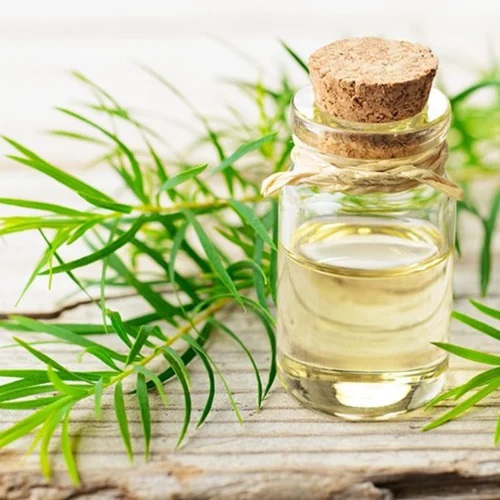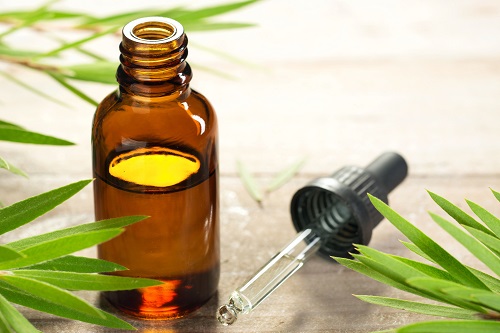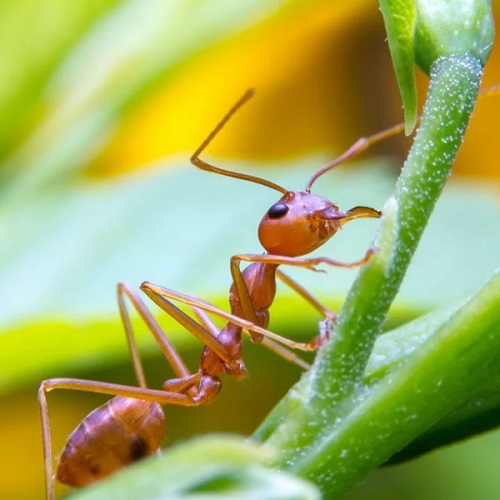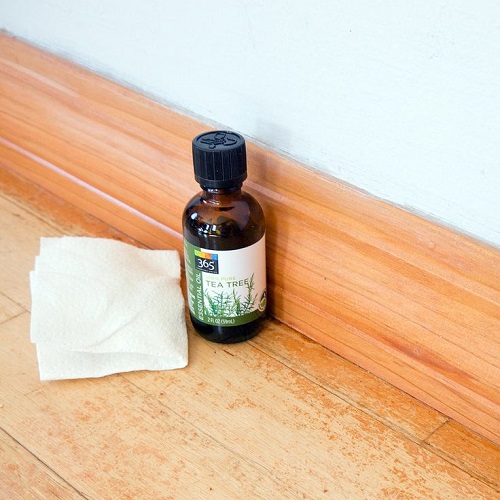Discover the surprising truth behind the question—‘Do Ants Hate Tea Tree Oil?’ and how it can be your secret weapon against ant invasions!
Dealing with ant invasions in your home can be a persistent nuisance, but did you know that there’s a natural and effective solution at your disposal? Tea tree oil, a versatile essential oil, has gained recognition for its ability to repel ants and keep your living spaces insect-free. So Do Ants Hate Tree Tea Oil? Well, let’s find out!
My Cat Licked Tea Tree Oil! What to Do? Learn here
What is Tea Tree Oil?
Derived from the leaves of the tea tree, Melaleuca alternifolia, a plant native to Australia, tea tree oil has a history of traditional use by indigenous communities for medicinal purposes. Its potent antiseptic and antifungal properties have made it a common ingredient in skin care, healing treatments, and household cleaning products.
Do Ants Hate Tea Tree Oil?
Yes, ants indeed “hate” tea tree oil.
Ants rely heavily on their sense of smell for survival — it’s how they communicate, find food, and navigate. The strong aroma of tea tree oil masks the scent trails and disrupts the pheromones ants use to communicate.
This disruption not only confuses ants but also effectively deters them from crossing into treated areas. It’s the terpenes in tea tree oil, compounds that emit the sharp smell, which ants find particularly offensive. Therefore, integrating tea tree oil into your pest control routine can serve as a potent natural deterrent, keeping ants at bay without resorting to harsh chemical repellents.
However, do remember that while ants dislike tea tree oil and will generally avoid it, this method will not address an infestation’s root cause.
Learn about the Effectiveness of Tea Tree Oil Against Bug Bites here
How to Use Tea Tree Oil to Repel Ants?
Using tea tree oil to repel ants is a straightforward process that involves:
- Direct Application: Soak cotton balls in tea tree oil and place them at entry points or along the trails where ants are observed. The strong scent will work to mask their trails and disrupt their navigation.
- Diluted Spray Solution: Mix 10-15 drops of tea tree oil with water and spray the solution along baseboards, countertops, and other areas where ants enter or congregate. Remember to shake well before each use, as oil and water naturally separate.
- Cleaning Solution: Add tea tree oil to your regular cleaning solution to wipe down surfaces. Not only will this clean and disinfect, but it will also leave behind a residue that acts as a natural deterrent for ants.
Learn about Using Tea Tree Oil and Castor Oil for Hair Growth here
Additional Tips for Ant Control
In addition to using tea tree oil, consider these additional tips for effective ant control:
- Keep your home clean and free of food crumbs, which may attract ants in the first place.
- Store food in airtight containers to prevent access for foraging ants.
- Repair any cracks, gaps, or holes in your home’s structure that ants could use as entry points.
Safety Considerations
While tea tree oil is a natural product, it is also potent and can be toxic if ingested, particularly for pets. Never use it at a spot where there’s a chance it could come into contact with food. Always dilute the oil when using it in applications that may come into contact with skin, and use it in well-ventilated areas.
Conclusion
So Do Ants Hate Tea Tree Oil? The certainly do. Tea tree oil’s strong scent and volatile compounds make it a formidable natural repellent against ants. Its non-toxic properties appeal to those seeking eco-friendly pest control methods.
However, its use should be considered a preventive measure rather than a complete solution to ant infestation. As with all pest management strategies, consistency and patience are key.
Can You Mix Castor Oil with Tea Tree Oil? Learn here
FAQs
1. How Does Tea Tree Oil Repel Ants?
Tea tree oil repels ants by masking their scent trails with its strong aroma. Ants communicate and navigate using these pheromone trails. When tea tree oil interferes with these trails, ants can no longer follow each other to food sources, which disorients them and deters them from entering the area.
2. Can Tea Tree Oil Kill Ants?
No, tea tree oil is not typically lethal to ants. It acts as a repellent rather than an insecticide. While it can effectively discourage ants from entering an area, it does not kill them or eliminate an existing infestation.
For active infestations, more targeted ant-control methods may be necessary.
3. Is Tea Tree Oil Safe To Use Around Pets And Children?
Tea tree oil should be used with caution around pets and children. In its concentrated form, it can be toxic if ingested and can potentially cause topical irritation. When using it as a repellent, it’s essential to dilute it appropriately and apply it in areas that are not accessible to pets and children.
4. How Often Should I Reapply The Tea Tree Oil Solution to Keep ants Away?
The frequency of reapplication may vary depending on environmental factors and the strength of the tea tree oil solution. In general, it’s a good practice to reapply the solution every few days or when you notice that the scent has faded. Be consistent in maintaining the barrier to deter ants effectively.
5. Can I Use Tea Tree Oil To Repel Other Pests, Or Is It Only Effective Against Ants?
Tea tree oil has a broad spectrum of pest-repelling properties and can be effective against a variety of insects, including spiders, roaches, and mosquitoes. You can adapt the tea tree oil solution to deter other pests by targeting their entry points and pathways.
6. What Should I Do If I Have A Severe Ant Infestation In My Home?
While tea tree oil is effective for minor ant problems or as a preventive measure, severe infestations may require professional pest control services. If your ant infestation is extensive or persistent, consult with an experienced pest control expert who can assess and address the issue comprehensively.




